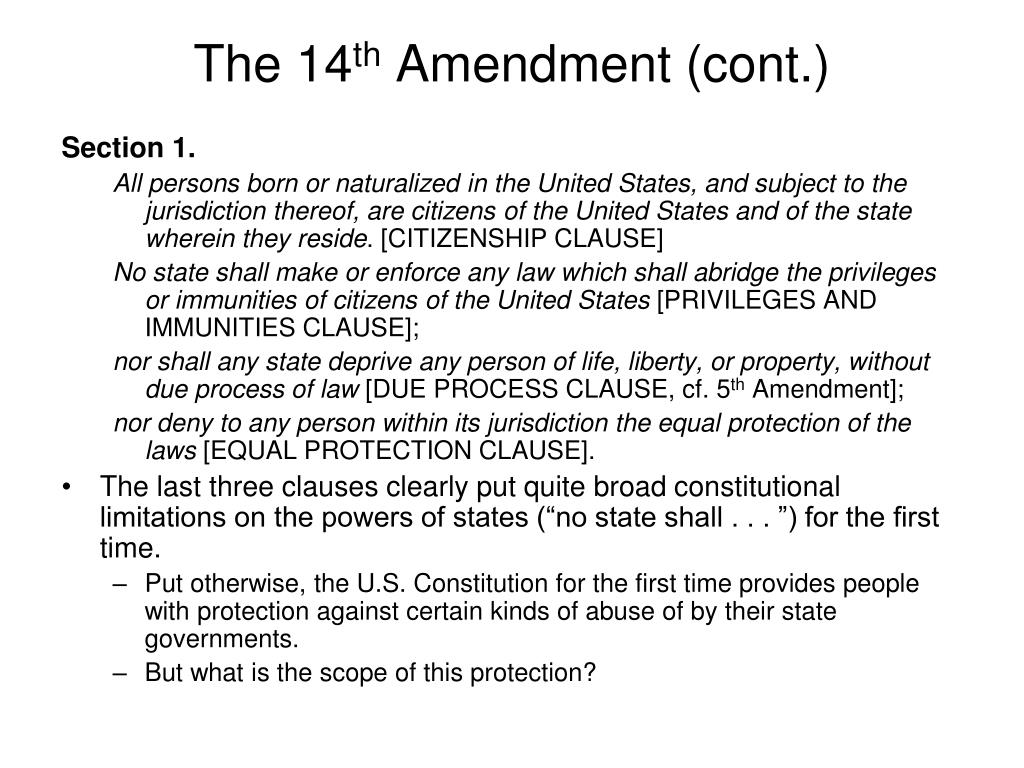

As such, the Supreme Court decided that the restaurant's discrimination unconstitutionally violated the Equal Protection Clause.

The Supreme Court, influenced by the fact that the garage was used for public parking, ruled that the restaurant was closely tied to the state in such a way that the discrimination could be considered state action. 715 (1961), a restaurant which leased space in a public parking garage was found to engage in racially discriminatory practices. 1 (1948), the Supreme Court decided that the judicial enforcement of a private restrictive covenant that prohibited non-Caucasian occupants violated equal protection to a black buyer, even though enforcing private restrictive covenants was generally valid and enforceable. The Court also handled a number of cases dealing with racial discrimination by private actors. 598 (2000), the Supreme Court rejected Guest, and struck down part of the Violence Against Women Act that provided a civil remedy for victims of sex-related violence. In later cases, the Courts tried to distance itself from the Guest decision, and in United States v. 745 (1966) that the Enforcement Clause gave Congress the power to regulate the private of individuals who conspired with state officials to deprive people of their rights under Section One of the Fourteenth Amendment. 3 (1883), the Supreme Court ruled that the Civil Rights Act of 1875, which prohibited racial discrimination in public accommodations, was unconstitutional because it tried to regulate private actors. The State Action Clause of the Fourteenth Amendment declares that a state cannot make or enforce any law that abridges the privileges or immunities of any citizen. The Court in Wong Kim also applied that ruling "ll persons born or naturalized in the United States," finding that those persons "are citizens of the United States and of the State wherein they reside." State Action

649 (1898), the Supreme Court held that when a child is born in America to non-citizen Chinese parents, that child is a United States citizen.

Congress, however, granted citizenship to Native Americans in 1924 when it passed the Indian Citizenship Act. 94 (1884), the Supreme Court held that children born to members of Native American tribes governed by local tribal governments were not automatically granted citizenship under the Fourteenth Amendment. As such, the Fourteenth Amendment effectively overturned Sanford v. It also ensured that federal citizenship was also made primary, which meant that states could not prevent freed slaves from obtaining state citizenship and thus federal citizenship. The Fourteenth Amendment, however, guaranteed that everyone born or naturalized in the United States and under its jurisdiction would be a United States citizen. 393 (1857), the Supreme Court held that African Americans were not U.S. and state citizenship at birth to all individuals born in the United States. CitizenshipĪlso known as the Naturalization Clause, the Citizenship Clause is contained in Section One of the Fourteenth Amendment. Section Five expressly authorizes Congress to enforce the Fourteenth Amendment “by appropriate legislation.” The states ratified the Fourteenth Amendment in 1868 in the immediate aftermath of the American Civil War, along with the other Reconstruction Amendments-the Thirteenth and Fifteenth. Section Four addresses federal debt and repudiates debts accrued by the Confederacy. Section Three forbids anyone who participates in “insurrection or rebellion” against the United States from holding federal office. Section Two deals with the apportionment of representatives to Congress. However, the Fourteenth Amendment contains four other sections. The Fourteenth Amendment contains a number of important concepts, most famously state action, privileges & immunities, citizenship, due process, and equal protection-all of which are contained in Section One.


 0 kommentar(er)
0 kommentar(er)
